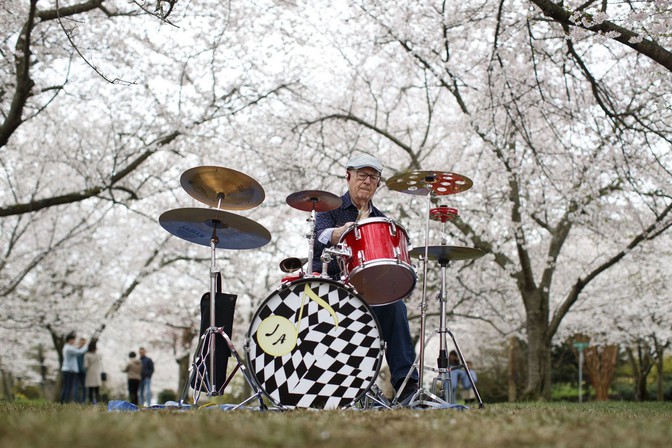It’s Monday, April 6. In today’s newsletter: What is actually known about hydroxychloroquine, the drug the president is fixated on recommending for COVID-19. Plus: The pandemic seems to be hitting people of color the hardest.
*
« TODAY IN POLITICS »
/media/img/posts/2020/04/original-6/original.png)
(The Atlantic)
Trump’s Miracle Drug
President Trump has tweeted some very questionable information about the coronavirus, most recently hyping “HYDROXYCHLOROQUINE & AZITHROMYCIN,” as a potential treatment for COVID-19. Our staff writer James Hamblin cautions:
While some very early evidence has shown that hydroxychloroquine may influence the course of COVID-19, Trump is overriding his top medical adviser and minimizing serious risks by encouraging Americans to try the drug right now. This brazen dispensation of medical advice from the president is dangerous in ways beyond the potential harm of the drug itself.
What is known about hydroxychloroquine, then?
It is unclear how hydroxychloroquine would work to treat COVID-19, but the drug is one of many now being urgently studied for the treatment of the disease. The drugs being tested include those that could block viral replication, such as remdesivir, and others that may target the way the virus binds to human cells. Still other drugs aim to modulate a person’s immune response, among them a class of drugs known as IL-6 inhibitors. Hydroxychloroquine has the theoretical potential to affect the virus itself or the immune response. In addition to treating malaria, hydroxychloroquine is importantin the treatment of autoimmune diseases such as rheumatoid arthritis and lupus. In those specific conditions, the drug effectively serves to subdue an overactive immune response.
*
« THE CORONAVIRUS READER »
(Carolyn Kaster / AP)
In this photograph, Joel Albert, of Potomac, Maryland, plays his drums under a canopy of cherry blossoms at the end of March. Our senior editor Alan Taylor has put together this essay of images of warmer days and beautiful flowers returning to the Northern Hemisphere, for all of those who can’t be outside to see them.
*
« THE CORONAVIRUS READER »

(MIM.GIRL / SHUTTERSTOCK / THE ATLANTIC)
+ The pandemic seems to be hitting people of color the hardest, Ibram X. Kendi notes based on his reading of data from hot spots. And “in the end, though, no group of Americans may be more vulnerable to COVID-19 than the incarcerated and the homeless,” he writes. It’s time to pay more attention to these pandemic disparities.
+ What’s going on with Bill de Blasio? The New York mayor seems irritated by the need to fight the coronavirus, Alexander Nazaryan writes: “Aware that his progressive ambitions have been frustrated, de Blasio has complained that legions of enemies—conservatives, capitalists, newspaper headline writers—are arrayed against his vision for the city.”
+ The president belatedly acknowledged how dire a threat COVID-19 is, but many of his enablers in right-wing media refuse to take his cue, Peter Beinart writes: “Even when he reluctantly accepts a scientific consensus, some of the biggest conservative megaphones in America still won’t.”
+ Conor Friedersdorf has a few suggestions for fantasy sports programming that can safely entertain a television audience during the pandemic. Hall-of-Famers H-O-R-S-E? Tennis-Icon Ping-Pong?
You can keep up with The Atlantic’s most crucial coronavirus coverage here.
*
Today’s newsletter was written by Kaila Philo, a Politics fellow. It was edited by Shan Wang, who oversees newsletters.
You can reply directly to this newsletter with questions or comments, or send a note to politicsdaily@theatlantic.com.
Your support makes our journalism possible. Subscribe here.
We want to hear what you think about this article. Submit a letter to the editor or write to letters@theatlantic.com.


/media/None/headshot-17/original.png)





























